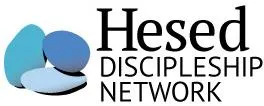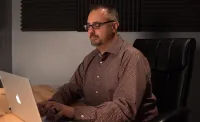Church Hurt Blogs

How to Deal With Church Hurt
Before getting started, it’s important to note that this article addresses ‘Church hurt’ from a more community, culture-centric focus. Those carrying wounds and trauma from Church experiences would benefit tremendously from some type of individual counseling, therapy, and/or healing prayer ministry. Having said that, this write-up will approach how to heal Church hurt from a more corporate, systemic, Church community point of view.
Therefore, how might individuals, pastors, ministry leaders, and Churches collectively work together to address this issue with Jesus from both an immediate intervention and long-term prevention perspective?
Here are some ways Churches typically address the issue of ‘Church hurt’:
Teach, preach, and study the Scriptures more on true identity, healing, and freedom in Christ.
Outsource individuals to participate in healing ministries and/or counseling referrals.
Involve prayer teams to bear the burden of those in need of support.
Invite guest speakers to preach on the subject of healing, reconciliation, and healthy conflict resolution.
Provide pastoral counseling to talk things through.
Research more helpful, Biblically grounded resources on the subject of heart healing.
All of these are important, appropriate, excellent, and necessary. However, all this is incomplete and, more often, will fall short of actually resolving and mitigating the effects within Jesus’ Church systemically.
Why?
The reason is these types of interventions are designed to address only a part of the brain that is responsible for conscious thought, speech, strategies, problem-solving, logic, and stories. In other words, the left side of our brain will fully embrace and benefit from these interventions. However, these things do not address another part of the brain where individual and group identity, emotional attunement to others, and relational attachments are formed, shaped, and directly impacted.
The place to begin healing from and mitigating ‘Church hurt’ must include a whole-brain model of healing, spiritual formation, and discipleship.
Become a Student of Whole Brain Discipleship
Given a basic understanding of how one part of the brain is trained and discipled by God and a Church community, what is the other half of our brain responsible for in the discipleship process?
Authors Michel Hendricks and Jim Wilder provide us with some clarity:
“With that in mind, our right brain governs the whole range or relational life: who we love, our emotional reactions to our surroundings, our ability to calm ourselves, and our identity both as individuals and as a community. The right side manages our strongest relational connections (to both people and God) and our experience of emotional connectedness to others. And character formation. Don’t miss that. Character formation, which is a primary responsibility of the Church, is governed by the right brain, not the left brain. If we want to grow and transform our character into the character of Jesus, we must involve activities that develop and stimulate the right brain.
(The Other Half of Church, p.22)
Can you believe that?
With decades of proven brain imagery data and study, these men are proposing that character formation is governed by the part of our brains that most of our discipleship, teaching, and training models do not directly influence or impact. In other words, our characters are most revealed how we respond when under tremendous pressure. Without having solid “right brain” training through relational skills in our families of origin, will leave the door wide open for relational (and Church) hurt when people are under pressure.
This is why people don’t act like themselves when things are difficult, yet they know to practice strengthening left-brain skills such as knowing the Bible inside and out, practicing spiritual disciplines, and participating in left-brain types of counseling. Consequently, it’s important to become a student of whole-brain discipleship of how the right brain operates and is connected to healing and character transformation. The best place to start to become informed on this subject is the book “The Other Half of Church,” published by Life Model Works.
Upon understanding how the right brain functions and is engaged in a discipleship way, the conversation now shifts to a concept called relational skills training.
Engage in Relational Skills Training
Learning to be effective in the subject of relationships is no different than any other field of knowledge. Improvement and growth require understanding, practice, modeling, feedback, and coaching, much like anything else.
Somehow, the subject of relationships is something for all to figure out “organically” and by themselves, especially in the Church world, without any type of intention or focus on training and development. And yet, loving one another is one of the central tenets sandwiched between the evidence of our love for God and how we love others (I John 4:20), including it being the premier witness of proving the existence of Jesus to the world (John 13:34=35).
Therefore, it is logical to conclude that where there is Church hurt caused directly by relationships between others, it is wise to pursue a form of Biblical-based discipleship that includes relational skills training that includes the critical necessity of actively attaching to others in a secure, loving bond over time, and practicing relational skills real time, not just learning or reading about relational skills and securely attaching to others.
Years ago, we developed a simple framework of five relational skills called S.A.L.V.E. This model has helped train others globally through a whole-brain model to both heal from Church hurt, while also cultivating an emotionally healthy community culture in a short amount of time. This does not mean that everyone became emotionally healthy overnight. However, the CULTURE of emotional health accelerated healing and maturity for all that came together with a group of 3-5 friends for an extended period of time.
What does S.A.L.V.E. stand for?
The acrostic represents shalom, appreciation, listening to your body, validation, and emotional maturity.
Shalom - This ancient Hebrew word is the concept of peace with many dimensions, such as wholeness, completeness, soundness, health, safety, and prosperity, and carries with it an implication of permanence. Through the practice of Shalom, we will become a non-anxious presence in the life of our three, and they in ours.
Appreciation - The easiest way to build the capacity for joy in more extraordinary measures is through appreciation. Telling someone what you appreciate about them in an authentic, heartfelt way has tremendous benefits to the soul and spirit of both the ones giving and receiving. Practicing this skill goes a long way to building someone up and helping to mirror/reinforce/strengthen the most authentic identity in Jesus.
Listen to Your Body - The Spirit is sending you leading indicators through your body. When we learn to listen to our bodies, we will gain insight into both the unseen portions of our being (soul), as well as where the Lord is leading us. Your body is the temple of the Holy Spirit! Your soul and body are one, and both inform the other. “Let the peace of Christ rule in your hearts, since as members of one body you were called to peace.” Colossians 3:16
Validation – this is a quieting skill that equips people to “presence” with others when there are intense emotions that help bring peace and restore the person back to their true identity, gently. This practice is not designed to “fix” someone, but to simply be with them by mirroring back their truth in the moment that allows the mind to find rest and eventually effective problem solving together with others.
Emotional Maturity – this is the final acrostic letter for the S.A.L.V.E. framework. In this skill, we seek to comprehend the different levels of Emotional Maturity. At each level, we need to understand the Personal Tasks and Family Tasks of Emotional Maturity. No one can become emotionally mature alone; it must be developed in an extended spiritual family.
Whatever relational skills training you choose, begin somewhere and have a few friends or a community of others to begin practicing. Utilize what works for your cultural expression of Christian community to begin the process of overcoming and reducing Church hurt.
Start Small and Let It Begin With You
If all of this is relatively new, we suggest beginning with the resource “The Other Half of Church” book study with a group of friends or a small group. There’s no time like the present to begin studying whole brain discipleship unto moving towards relational skills training.
Also, feel free to pass this book along to your Pastor, Ministry Leader, or Board member! Once you’ve read the book, engage in helpful discussions toward developing an effective strategy to address the ongoing cycles of hurt caused unintentionally through discipleship practices that are incomplete.
If you are someone who is sick and tired of witnessing the same relational dynamics continuing to bear negative consequences that cause others to hurt one another and leave the Church, make the decision to do something about it. Many Pastors and ministry leaders are increasingly more anxious and overwhelmed at work, with diminished capacity more than ever before since the Covid pandemic began.
Become a solutionary, learn what you can about the right brain that is responsible for relationships, engage in helpful training, practice relational skills with a few friends over time, and decide to go on the journey to become equipped as a whole-brain disciple of Jesus. We encourage you to be proactive in the quest for healing Church hurt.
If you do, you will not only begin to thrive in your walk with Jesus but you will also be someone bearing really Good News at a time that’s needed like never before, bringing healing and shalom to the hurting in the Body of Christ.
What if….?
**For more information about Church hurt, and how to address this effectively, click HERE to enroll in your FREE Masterclass!
Chris Caputo
Organizational Development Champion/ Hesed Discipleship Network
More about Church Hurt?
Get Our Newsletter!
Sign up to receive
our email newsletter.
Get Our Newsletter!
Sign up to receive
our email newsletter.
Contact
Hesed Discipleship Network is a 501(c)3
Nonprofit Organization

